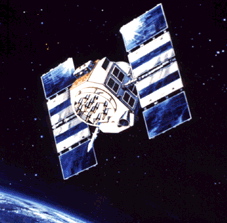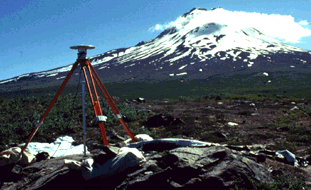Earth Science: Geology, the Environment, and the UniverseChapter 2:
Mapping Our WorldProblem of the WeekWhere in the World Are You? Ordinarily, this is a question that can be answered in several ways, depending on the perspective of the person asked. For example, a possible answer might be, "On planet Earth, in the Milky Way Galaxy." Another answer could be, "In my office, on Wall Street." Both answers would be an acceptable answer to the question. However, what if you were asked to give your exact, really exact, location on the planet. Could you do it? Would you know how to, or could you precisely describe your location?  <a onClick="window.open('/olcweb/cgi/pluginpop.cgi?it=gif::::/sites/dl/free/0078664233/184135/Image31.gif','popWin', 'width=NaN,height=NaN,resizable,scrollbars');" href="#"><img valign="absmiddle" height="16" width="16" border="0" src="/olcweb/styles/shared/linkicons/image.gif"> (24.0K)</a> <a onClick="window.open('/olcweb/cgi/pluginpop.cgi?it=gif::::/sites/dl/free/0078664233/184135/Image31.gif','popWin', 'width=NaN,height=NaN,resizable,scrollbars');" href="#"><img valign="absmiddle" height="16" width="16" border="0" src="/olcweb/styles/shared/linkicons/image.gif"> (24.0K)</a> | Sure you could. You could go out and buy a handheld global positioning device that is sensitive enough to give you the latitude and longitude reading to within a radius of approximately 100-150 meters. As discussed in Chapter
2, the preciseness of this system is made possible by a network of 24 satellites, which emit high frequency microwaves. The user’s position is determined when the GPS device receives microwave signals from several satellites. Knowing the speed of microwaves and the distances between the GPS device and the satellites, the latitude and longitude of the GPS device can be pinpointed. The accuracy of |
the GPS system was not possible until the advent of atomic clocks; clocks so accurate that they "neither gain nor lose more than one second in 20 million years." (http://www.nist.gov/public_affairs/nhouse/clock.htm
The accuracy stems, in part, from the precise measurement of the time it takes for the microwave signal to travel to the receiver. The more error in our timing of the microwaves, the more error there will be in the calculations
that are done to pinpoint the location of the GPS device on Earth.
Above: An Artist's conception of a Global Positioning System (GPS) satellite in orbit. (Illustration courtesy of NASA.) Right: A GPS ground receiver -- here set up on the flank of Augustine Volcano (Cook Inlet, Alaska) --recording the signals sent by four or more of the orbiting GPS satellites.
(Photograph by Jerry Svarc, USGS.) http://pubs.usgs.gov/
publications/text/GPS.html |  <a onClick="window.open('/olcweb/cgi/pluginpop.cgi?it=gif::::/sites/dl/free/0078664233/184135/Image32.gif','popWin', 'width=NaN,height=NaN,resizable,scrollbars');" href="#"><img valign="absmiddle" height="16" width="16" border="0" src="/olcweb/styles/shared/linkicons/image.gif"> (37.0K)</a> <a onClick="window.open('/olcweb/cgi/pluginpop.cgi?it=gif::::/sites/dl/free/0078664233/184135/Image32.gif','popWin', 'width=NaN,height=NaN,resizable,scrollbars');" href="#"><img valign="absmiddle" height="16" width="16" border="0" src="/olcweb/styles/shared/linkicons/image.gif"> (37.0K)</a> |
Problem: The GPS system of satellites was originally designed for strategic defense and navigation purposes. Its’ application to other scientific and everyday activities is astounding. For example, during construction of the tunnel under the English Channel, construction crews on the British and the French sides relied on GPS receivers outside the tunnel to check their positions along the way and to make sure they met exactly in the middle. Other examples of how GPS is currently being used are in navigation systems in cars, and to help scientists in tracking caribou or whale migrations. Just think of the possibilities. What kinds of application can you think of? Devise
an application that has practical use in ordinary daily lives, or in a scientific application. Describe how you plan to use the GPS within that application.
 | 


















